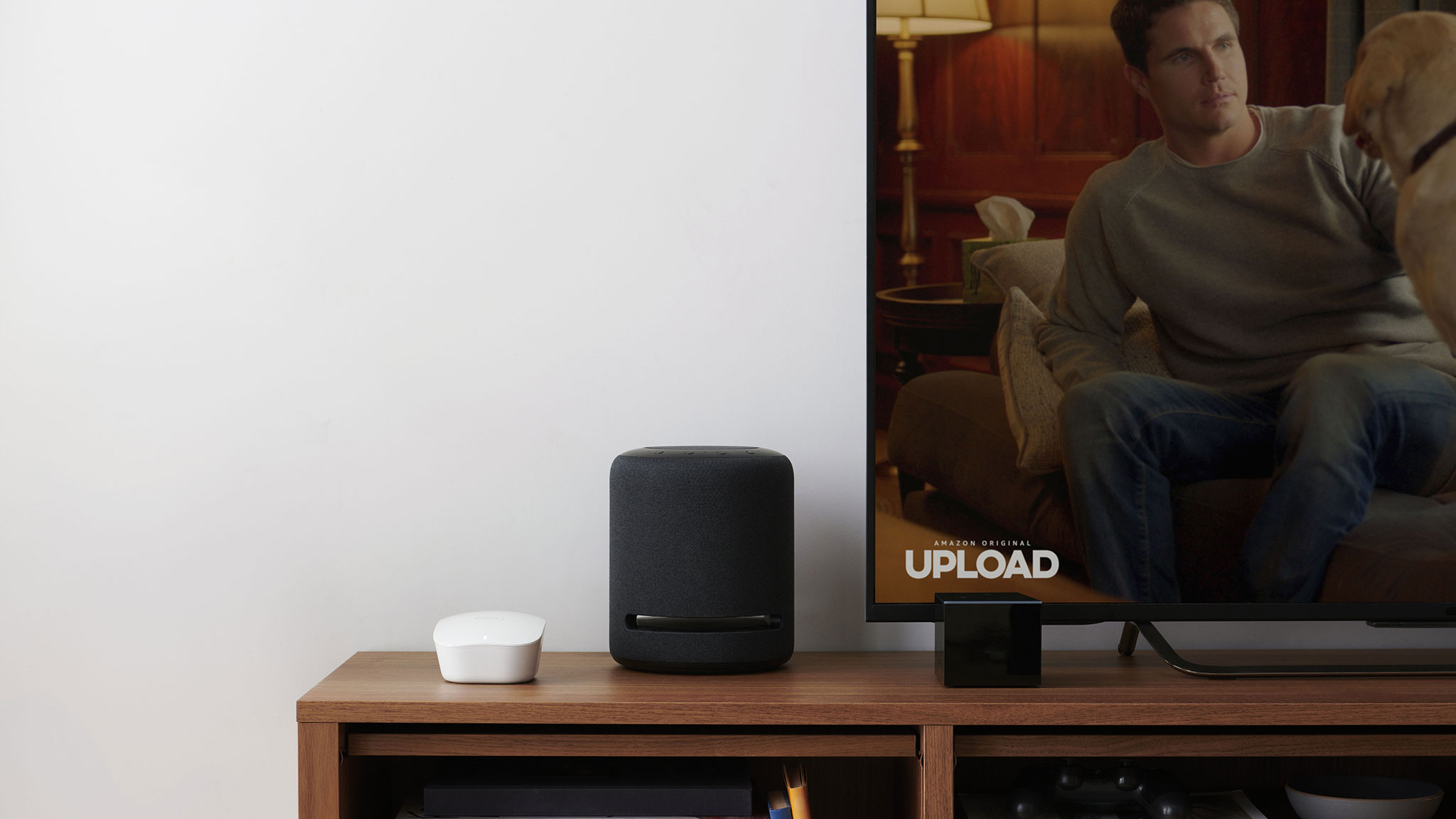How to speed up Wi-Fi with a mesh network
Why switching to a mesh network might be just the thing to improve the speed of your Wi-Fi

Especially lately, a stable wireless network connection is more important than it's ever been. The internet is our connection to the rest of the world during quarantine, our lifeline to friends, colleagues, and family. And perhaps more importantly, it's how many of us have stayed sane through 2020.
That's why it's beyond frustrating when things don't work as they should.
Games become unplayable as a result of lag. Netflix gets caught in an endless buffer cycle, constantly stuttering and repeating. Video calls become trying affairs filled with incomprehensible robot noises.
If you notice this sort of thing happening more and more frequently while you're connected to Wi-Fi, it may be time for an upgrade.
Before you do that, though, you should take a look at your ISP. It doesn't matter how good your Wi-Fi network is if it simply isn't fast enough. But how much bandwidth do you need here, exactly?
That depends on a few factors.
- How many devices are connected to your wireless network, and what are the requirements of those devices? A connected light bulb, for example, uses much less data than a smart TV.
- How many people live in your home? If, for instance, you have a roommate playing games while you're watching Netflix, you'll need a lot more bandwidth than if you lived alone.
- What are you going to use your Wi-Fi network for? Video streaming, gaming, and video chats are all highly bandwidth-intensive, but passively browsing the internet is not.
Generally speaking, we'd recommend a minimum of 150-200 Mbps. That said, faster is always better. Spring for fiber if you can, as bandwidth requirements are only going to get higher as connected devices become more prominent.
With that out of the way, let's talk about your hardware. See, traditional Wi-Fi routers simply weren't designed to support the Internet of Things. They were meant to support a few PCs, maybe a smartphone or a gaming console.
As you add devices to your network, you're eventually going to see a drop in performance. If it helps, you might think of your network like a highway, and each device as an additional vehicle. Eventually, if you don't add extra lanes, the highway's going to get clogged and traffic will slow to a snail's pace.

The same thing applies to wireless networks. The more devices connected to your Wi-Fi, the more congested it will become. That isn't the only way Wi-Fi speed can suffer, either.
Many standard routers don't exactly offer perfect coverage of your entire home. Even if your network isn't overly congested, there are still likely to be dead zones. Areas where your connection is either slower and less reliable due to a weak signal, or absent altogether.
The solution, outside of paying an arm and a leg for an ultra high-end Wi-Fi 6 router, is mesh networking.
Where traditional Wi-Fi relies on a single router as its access point, a mesh network consists of a series of nodes, each of which acts as its own individual gateway. In addition to offering better overall resilience and reliability, this also allows you to more or less eliminate any dead zones in your home, positioning multiple 'nodes' of the network to provide the best coverage possible.

Additionally, modern mesh networks like those offered by eero, include Quality of Service (QoS) controls that allow them to intelligently route and manage traffic. Certain devices and applications can be given higher priority either manually or via artificial intelligence. In eero's case, its devices feature something known as Smart Queue Management (SQM), which dynamically and efficiently balances bandwidth demands to help ensure that every device receives precisely what it needs to function.
Finally, because each individual node of a mesh network functions as its own access point, each node can effectively manage its own 'group' of connected devices. Rather than flooding a single router with data, communication is spread out across the network. While everything ultimately does have to route back to your modem, spreading things out this way means a lot less stress on each individual access point.

Now, at this point, it's important to note that mesh Wi-Fi networks are not, by their nature, inherently faster than traditional Wi-Fi networks. They may be capable of routing traffic more efficiently and provide better overall coverage, but that doesn't automatically equate to faster speeds.
If you don't use a ton of smart devices or have to deal with any wireless dead zones, investing in a mesh network likely won't be as beneficial to you. Same deal if you already have a high-end Wi-Fi 6 wireless router. If, however, you're looking to support and future-proof the expansion of your smart home, mesh is ultimately the way to go.
The eero Pro 6 is an excellent starting point in that regard. Fully Wi-Fi 6 capable and with a Zigbee smart home hub, this tri-band access point offers speeds of up to a gigabit over an area of 2,000 square feet. It connects seamlessly with eero's other offerings, and provides extra network security via the eero Secure + service.
The eero Pro 6 and the eero 6 are currently available for preorder, with a targeted release of November 2, 2020.
Get all the latest news, reviews, deals and buying guides on gorgeous tech, home and active products from the T3 experts

For 25 years T3 has been the place to go when you need a gadget. From the incredibly useful, to the flat out beautiful T3 has covered it all. We're here to make your life better by bringing you the latest news, reviewing the products you want to buy and hunting for the best deals. You can follow us on Twitter, Facebook and Instagram. We also have a monthly magazine which you can buy in newsagents or subscribe to online – print and digital versions available.


